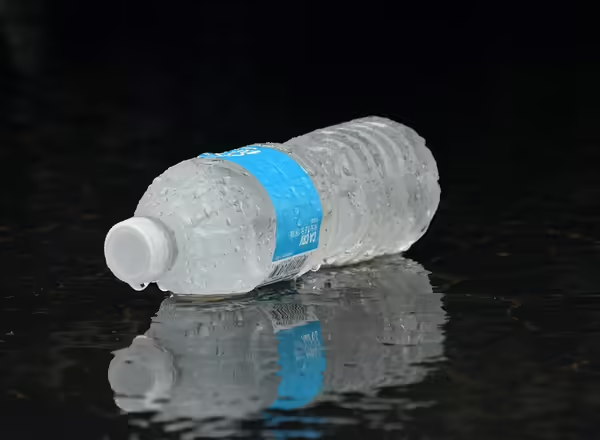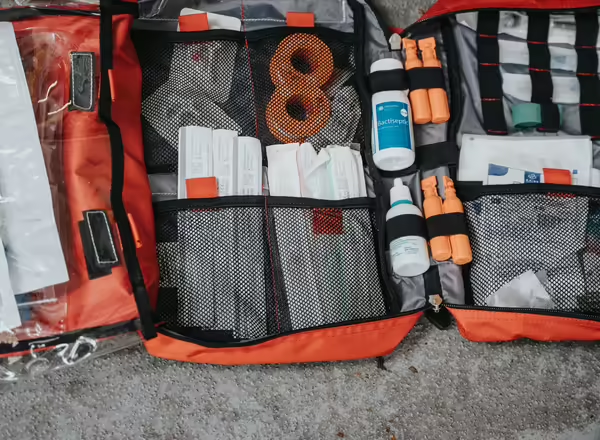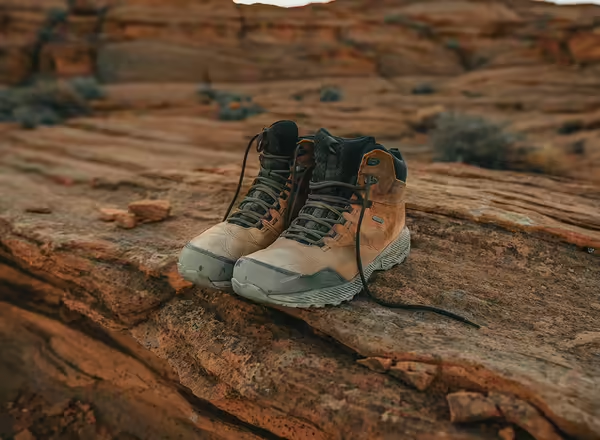Be ready for when things go bad
Family Disaster Supply Kit
Local officials, emergency responders, and relief workers will be on the scene to provide assistance immediately following an earthquake. However, they will not be able to provide assistance to everyone at once. It is important that you and your family be prepared to be self sufficient until help arrives which could be for three days or even longer.
Assembling supplies now that you would need following an earthquake will enable your family to endure an evacuation or home confinement. A list of the supplies you should gather appears below. Those marked with asterisks (*) should be placed in Disaster Supply Kits (easy-to-carry containers).

Store at least three days' supply of nonperishable food. Foods that require no refrigeration, preparation or cooking and little or no water are recommended. Pack a can of Sterno to heat food. Your Disaster Supply Kit should include a selection* of the following: ready-to-eat canned meats, fruits, and vegetables; canned juices, milk, soup; staples - sugar, salt, pepper; high energy foods - peanut butter, jelly, crackers, granola bars, trail mix; vitamins; foods for infants, elderly persons or persons on special diets; and comfort/stress foods - cookies, hard candy, sweetened cereals, lollipops, instant coffee, tea bags.
Store at least a three-day supply of water (one gallon per person per day*) for each person in your household.

Assemble a first aid kit for your home and one for each car. A first aid kit* should include: sterile adhesive bandages in assorted sizes; 2-inch sterile gauze pads (4-6); 4-inch sterile gauze pads(4-6); hypoallergenic adhesive tape; triangular bandages (3); 2-inch sterile roller bandages (3 rolls); 3-inch sterile roller bandages (3 rolls); scissors; tweezers; needle; moistened towelettes; antiseptic; thermometer; tongue blades (2); tube of petroleum jelly or other lubricant; assorted sizes of safety pins; cleansing agent/soap; latex gloves (2 pairs); and sunscreen. Also, assemble non-prescription drugs such as: aspirin or a non-aspirin pain reliever; anti-diarrhea medication; an antacid (for stomach upset); syrup of Ipecac (use to induce vomiting if advised by the Poison Control Center); laxatives; and activated charcoal (use if advised by the Poison Control Center). Obtain a basic first aid manual from your local American Red Cross chapter or a local book store.
Tools and Supplies
Recommendations and suggestions include: mess kits, or paper cups, plates and plastic utensils*; emergency preparedness manual*; battery operated radio and extra batteries*; flashlight and extra batteries*; cash (small bills) or travelers' checks, change*; non-electric can openers, utility knife*; fire extinguisher (small canister, ABC type); tube tent; pliers; tape; compass; matches in a waterproof container; aluminum foil; plastic storage containers; signal flares; paper, pencil; needles, thread; medicine dropper; shut-off wrench, to turn off household gas and water; whistle; plastic sheeting; and map of the area (for locating shelters). Sanitation supplies including: toilet paper, towelettes*; soap, liquid detergent*; feminine supplies*; personal hygiene items*; plastic garbage bags, ties (for personal sanitation uses); a plastic bucket with a tight lid; disinfectant; and household chlorine bleach.

At least one complete change of clothing and footwear per person* including: sturdy shoes or work boots*; rain gear*; blankets or sleeping bags*; hats and gloves; thermal underwear; and sunglasses.
Remember family members with special needs, such as infants and elderly or disabled persons should be included; for baby-* formula, diapers, bottles, powdered milk, medications; for adults - heart and high blood pressure medications, insulin, prescription drugs, denture needs, contact lenses and supplies, extra eye glasses; entertainment - games and books; and important family documents (keep these records in a waterproof, portable container) - will , insurance policies, contracts, deeds, stocks and bonds; passports, social security cards, immunization records; bank account numbers; credit card account numbers and companies; inventory of valuable household goods, important telephone numbers; and family records (birth, marriage, death certificates).